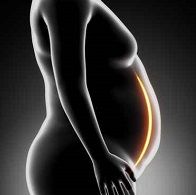Article
Should Obese Patients Get Liver Transplants?
Author(s):
Obese people are generally less healthy than those of normal weight, but that should not be a barrier to liver transplantation, researchers said at the 2015 Liver Meeting (AASLD) in San Francisco, CA.

Fat people face discrimination when it comes to liver transplantation.
Obesity is widely regarded as a reason to exclude morbidly obese patients from liver transplantation.
In a study presented at the 2015 Liver Meeting (AASLD) in San Francisco, CA, researchers from the Oregon Health and Science University said that these patients do fine with a transplant.
Barry Schlansky, MD, MPH and Kristian Ernestvedt, MD, said that while obese patients are more likely to die waiting for a transplant, they have the same risk of mortality as normal weight patients if they do get the surgery.
"Our study revealed that obese patients benefit more from liver transplantation than lower weight patients, suggesting that we should consider lowering weight restrictions for patients who are otherwise good candidates for liver transplant, " Schlansky said.
But he noted that these patients are more likely to have co-morbidities, including diabetes, heart disease, and kidney disease.
"The liver transplant community will have to learn how to better deal with these issues if we begin transplanting more obese patients," he said.
Schlansky said over 85% of US centers consider morbid obesity to be a contraindication for liver transplantation.
But before his team's study "outcomes and survival benefit for obese patients have not been well studied," he wrote in an abstract.
The researchers evaluated the association of body mass index with wait list and post-transplant outcomes in patients wait-listed from 2005 through 2014. They used the United Network for Organ-Sharing database. They found that 3.9% of 80,221 wait listed patients and 3.5% of 38,177 transplanted patients were morbidly obese, defined s a BMI of equal to or greater than 40. These patients had a 1.4 times greater risk of dying while awaiting a transplant, but post-transplant risk was the same.
Their conclusion was that "Morbid obesity is no longer associated with adverse outcomes after liver transplant and should not be viewed as a liver transplant contraindication."





